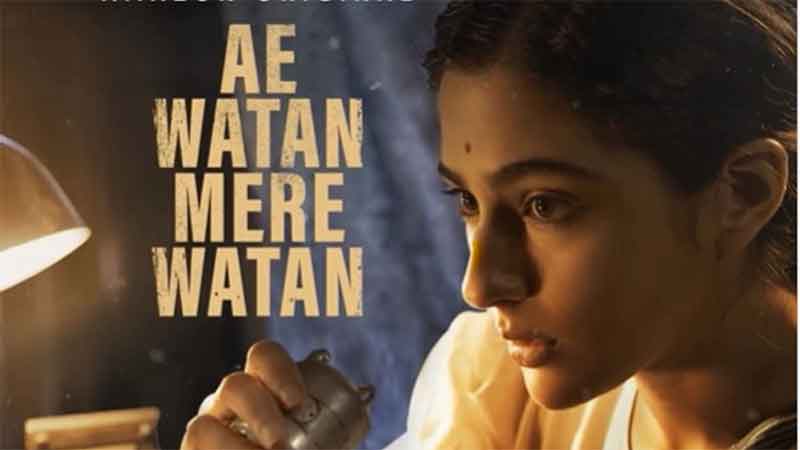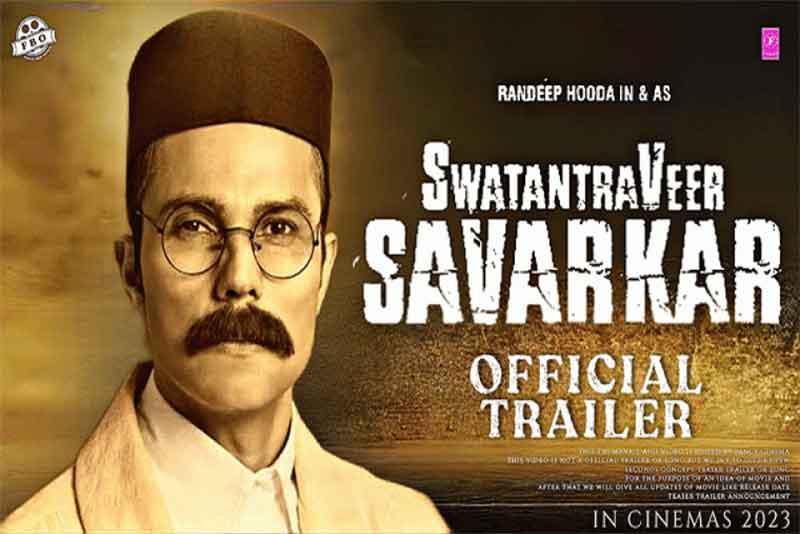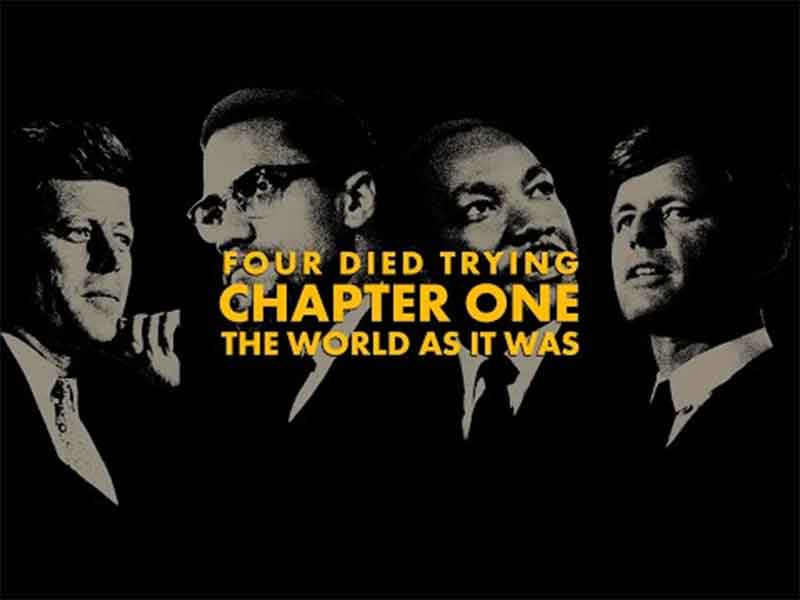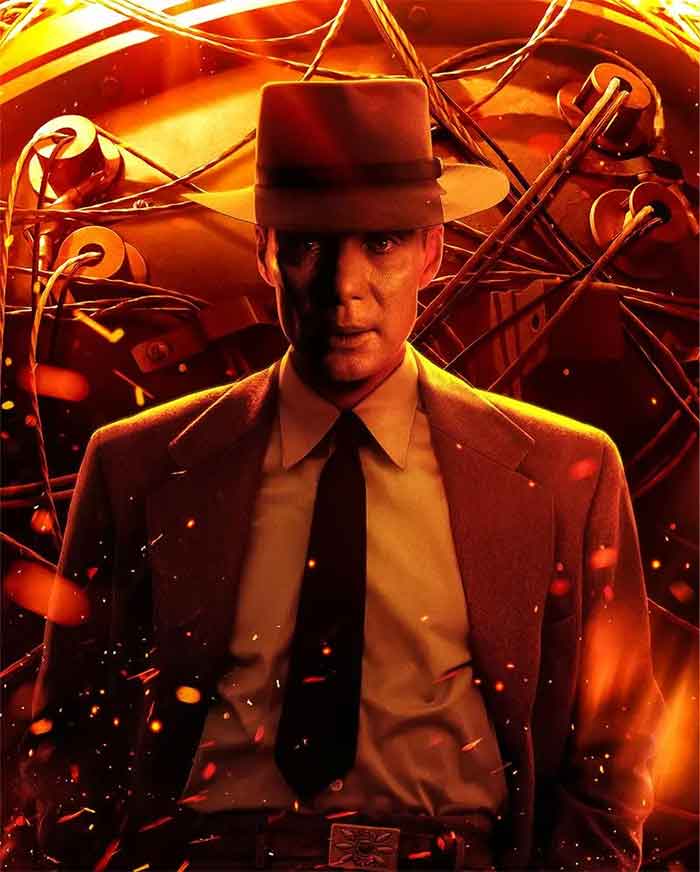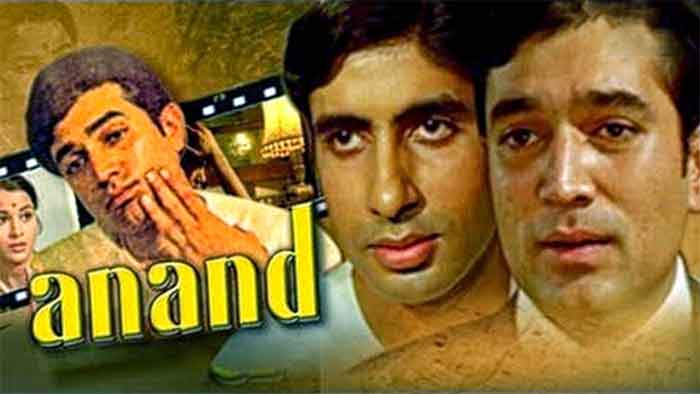
On March 12th today, we celebrate the 50th anniversary of the movie Anand ,made in 1971.Without doubt the film was amongst the finest, most touching or soul searching movies ever to have flashed the Bollywood screen..In my view late Rajesh Khanna as ‘Anand’ gave one of the finest performances ever on the silver screen. His co-actor Amitabh Bachchan as Babu Moshai ,Bhaskar or Dr.Banerjee ,too gave an outstanding performance. Hrishikesh Mukherjee directed the film, who blended every ingredient in a film to compile a masterpiece. The movie reveals great mastery in direction with no element of melodrama ,catharsis or dragging and humour instilled to make an audience pleased.
It was made when Rajesh Khanna was at the helm of his career and literally ruled Bollywood in the manner of a great emperor. I do not have an adjective to do justice to the monopoly of the superstar or his impact on psyche of the masses. It looked almost like God sent him to the earth to join the film world. as he virtually looked like a manifestation of the transcendental. Khanna virtually gave birth to a new era.
‘Anand’ is the story of a cancer patient just a few months away from death. who even a the very end of his life bubbles with enthusiasm and invigorates life in a range of characters. The scenes are bifurcated with technical precision, not prolonging any part. With classical direction most of the scenes convey the spirit of a man incarnating in life itself -dying living rather than the other way around. In the philosophical sense it reaches realms of the sublime. It is very hard to visualize any cancer patient not only so lively himself but infusing life into others.Anand never gives glimpses of struggling in dark waters and is brimming with joy or humour., wiping that tear from his eye.
No doubt there are powerful shades of eccentricity in behaviour like when referring to a girl in his colleague Dr Banerjee’s life and when casting jokes which irritate his friend. Rarely in a song has an actor’s eye conveyed feelings so deeply as when ‘Anand’ sings, touching he very core of your soul. To me the movie teaches us that no circumstances prevents us from living life to the fullest in the spiritual sense.Anand reveals that self -realization reaches boundaries never traversed before on the verge of death. The movie also has strong intervention of grief, but with no exaggeration. Human sensitivity is brought out to the very fore.
It is a testimony that Dr Banerjee is a crusader to save people’s lives and summarizes how the social system had no place for the poor people residing in slums.
The movie reveals great mastery in direction with no element of melodrama or dragging and humour instilled to make an audience pleased. Rajesh Khanna brilliantly portrays exuberance and joy even in dire straits .He is often brash or outspoken but still has a subtle element of charm when talking to people.
I complement the ease Rajesh Khanna exudes when enacting ‘Anand..’Rajesh Khanna is at his best when enacting the song ‘Kahin na Door Jaye’ where his facial expressions virtually narrate the turbulences of his life, like poetry in motion. I complement Rajesh Khanna for expressing no inhibition in acting even if it was not classical in the conventional sense. No doubt he displayed his characteristic mannerisms but accompanied by expressions of sublime proportions. I can’t visualize a cancer patient battling so hard even when death is a virtual formality. It is pertinent to see ‘Anand’ behave differently with the different characters of the plot.Anand’s mannerisms indifferent junctures reveal his condition nad the battle he is fighting within himself. It gives me memories of ‘Mera Naam Joker’ when a clown makes the world laugh inspite of deep grief within. Even if short his encounters are most touching with Matron D’Sa enacted by Lalita Pawar and Suman Kulkarni enacted by Seema Deo.There is also a most humorous scene of Dara Singh intervening to punish a set of hoodlums .
The movie ends with ‘Anand’s death scene which creates tears in our eyes inspite of the precedent scenes giving minimal indication that ‘Anand’ was on the verge of dying. Anand also portrays the spiritual essence of life and it is ironic that once he talks about learning a new dialect in his next life. He gives vibrations that spiritually life never has an ending, with the soul shimmering forever.
The songs composed by Salil Chowdhury and written by Gulzar and Yogesh take poetic virtuosity to region o f divinity.In ‘Kahin Door Jab’, introduces us to Anand’s pensive side as he gazes the setting sun with intensity at its highest volume.. Yogesh’s song has the terminally ill patient commenting on his surroundings from the sea to the beach. The song also expresses the anguish for the young man as he gives vent to his inner voice for the first time.In ‘Zindagi Kaisi Yeh Paheli’ Anand accompanies Dr Banerjee and his lady love Renu (Sumita Sanyal) to the beach. He walks away from the couple ravelling the mysterious element of the duality life in which feelings of sadness and happiness always exchange themselves.
One may ask why Babu Moshai often reprimands his mate.’Anand’ threw light on the state of the medical world and was made in the times when India was coming out of the idealism of the Nehruvian age, with poverty still at it’s zenith. Maybe a classic film of this magnitude should have thrown more light on the social reality prevailing or roots of diseases within the unjust social system. The start of the film does touch upon the aspect of the social system denying proper health care.
One of the saddest scenes is that of Morarilal played by Johnny Walker Johnny Walker hearing about ‘Anand’s fate and how he reflects on it. It also saddens me that Babu Moshai is not present at the moment of ‘Anand’s death, leaving in pursuit to find a cure for his colleague, only to find his friend already dead.
I wish there could be a remake of ‘Anand’ fitting into the criteria of the modern times, incorporating or respecting the vast changes that have taken place. .However today in the Corporate ruled world Man is even more alienated, with even health becoming the virtual monopoly of the mighty and powerful. Materialism is more crass than ever toady with spiritual values thrown into oblivion.
PLOT OF ‘ANAND’
Bhaskar, (enacted by Amitabh Bachchan)an oncologist treats the poor for no charge, but is often disheartened by the fact that he cannot cure all the ailments in the world. He becomes pessimistic after seeing the suffering, illness and poverty all around him. He is straightforward and won’t treat the imaginary ailments of the rich. His friend, Dr. Kulkarni, follows a slightly different path. He treats the imaginary illnesses of the rich and uses that money to treat the poor.
One day, Kulkarni introduces Bhaskar to Anand, who has lymphosarcoma of the intestine, a rare type of cancer. Anand has a cheerful nature and despite knowing the truth that he is not going to survive for more than six months, he maintains a nonchalant demeanor and always tries to make everyone around him happy. His cheerful and vibrant nature soothes Bhaskar, who has a contrasting nature and they become good friends. Anand has the rare quality of attracting people and befriending them. In one of such encounter, he makes Isa Bhai, a theater actor, his friend. They enjoy each other’s company and create an emotional bond.
Anand’s condition gradually deteriorates, but he does not want to spend his remaining days in a hospital bed; he, instead, roams freely and helps everyone. He discovers that Bhaskar has strong feelings for Renu, whom he had treated previously for pneumonia.. He helps Bhaskar express his love and convinces Renu’s mother to bless their marriage. He tells Bhaskar that everyone should remember him as a lively person and not as a cancer patient. His end comes and he dies amongst his friends and everyone remembers him as a vibrant and lively person. Bhaskar becomes more philosophical and continues to treat patients with even more empathy and maturity. (Plot from Wikipedia)
OTHER GREAT PERFORMANCES OF RAJESH KHANNA
In ‘Avishkaar ‘(1974)as Amar he bestows deep malleabality in blending seriousness, humour romance ,jealousy and anger .With artistic touch in a scene he speaks philosophically with his wife, Mansi enacted by Sharmila Tagore.Turns brutal knowing about his wife’s affair with a friend, Denis Clement ,depicting rage of a thunderstorm .Amar’s moods are reminiscent of the ebb and flow of Ocean waves or fluctuations of the four seasons..His role particularly in shaping the chemistry with his wife , makes the theme of the film so engrossing. I cant forget a scene when he tells his wife that a man cannot do what a women can do, which is producing a new life. In that part he most intrinsically praises her.
Amar (Rajesh Khanna) works in an Ad Agency, One night when he is alone in his office, Rita one of the staff walks in and invites him to join her for a movie. Back home, Mansi (Sharmila Tagore ) is at home with her child and Margarette, the maid. Sunil, Amar’s childhood friend comes home with flowers and wishes her a happy anniversary. It’s Amar’s and Mansi’s wedding anniversary and they don’t remember it themselves.
They think of their carefree days when they were madly in love with each other, when nothing seemed impossible. They start off with an ideal marriage; their small world is brimming with love and is perfect. A whole year and they are still happy with each other. On their second anniversary they decide it’s time to extend their family and plan to have a child.
Amar starts finding fault in everything that Mansi does even suspecting that there’s something going on between Mansi and Sunil. Mansi also knows about Rita. Amar wishes Mansi was as understanding as Rita. But though there are problems they sort them out.
Mansi gets up the following morning when the milkman comes. And when she goes out she sees the flowers that Amar had left outside the previous night. Amar comes from behind and sees her pick them up, he hugs her and they walk in together. (plot of Avishkar) from Wickepedia)
In ‘Safar’ (1970) again paying role of Avinash as a cancer victim like in ‘Anand’, he takes grace ,love and sadness depths of the sublime depicting great artistry in blending humour and tragedy. I can’t forget his dialogues with Dr. Neela ,enacted by Sharmila Tagore when painting a portrait or when encouraging her to marry Feroz Khan..His acting expresses great elasticity with 360 degree changes in moods reminiscent of snow appearing or lightning intervening on the hottest of summer days. As Avinash he expresses the inner turmoil he is facing and its effects on his life, as though darkness is hidden in his inner world. In contrast he radiates the vibrations of Spring blooming conversing with Sharmila when giving her a present of a portrait.Still the most sensitive part touch you in the core of your soul is when he tries to convince Sharmila Tagore to marry Shekar enacted by Feroz Khan.Truly brilliant contrast of joy and sadness reminiscent of the pitch in a musical symphony elevating from lowest to highest.It is Khanna’s calibre of acting that knits the tapestry or revolves around of a most artistic film with moral of rendering service to humanity
The movie starts with the desperate attempt of surgeon Dr. Neela to save a patient, who she knew wasn’t going to survive. She works under the guidance of Dr. Chandra (Ashok Kumar), who tells her that however hard doctors might try, sometimes a patient won’t survive. The story drifts into a flashback. Neela meets Avinash at medical college and after an initial misunderstanding, grows close to him. Avinash is a poor man who works while attending medical college. He is a skilled commercial artist too, and Neela finds out that most of the portraits he paints are of her. Though Avinash admires Neela very much, he never talks about love or marriage. Everyone thinks that it’s because of his financial status, but it is later revealed that it is because he is suffering from terminal cancer.
Neela, due to financial troubles, starts working as a tutor where she meets her student’s (Mahesh Kothare) elder brother, businessman Shekhar Kapoor (Feroz Khan). Shekhar falls in love with her. He meets her elder brother Kalidas (to ask for her hand in marriage. Kalidas instead directs him to Avinash saying that Neela would heed his counsel. Shekhar is puzzled but meets Avinash nevertheless, who warmly approves of him and recommends him to Neela. Neela is shocked to learn that Avinash has blood cancer and cannot marry her. After an intense scene where he persuades her to settle down with the “wealthy, healthy” Shekhar, she finally agrees to marry Shekhar. The couple are initially happy together, but Shekhar always feels that Neela does not love him as much as he loves her. Facing losses in business, he desires Neela’s sympathy but does not reveal his troubles to her. His insecurity prompts him to make his younger brother Montu stalk Neela everywhere she goes, fuelling marital discord.
Moreover, Neela regularly visits her brother’s house where Avinash was a frequent visitor. She also visits Avinash’s place. Shekhar slowly grows suspicious of Neela and Avinash and asks his younger brother to spy on her. Later he finds a “love letter”, which was once written by Avinash as he imitated Neela’s handwriting just for fun. However, in a grave misunderstanding, Shekhar thinks that Neela has indeed written that love note to Avinash and becomes devastated. He wants to set her free from their marriage, and ends up dying by suicide. Police suspect that Neela killed him and arrest her for murder.
In a surprising twist during the trial, Shekhar’s mother Mrs. Kapoor who was always hostile to her daughter-in-law, testifies in favour of her unblemished character. The court acquits Neela. Later it is revealed that Avinash left to get away from their marital lives not knowing that Shekhar had committed suicide. He comes back in the final stage of his disease and dies in Dr. Chandra’s hospital. Heart-broken and devastated, Neela has lost the will to live, but Dr. Chandra consoles her and takes her under his wing to make her a great surgeon like him. The film ends with Neela sending her brother-in-law Montu) abroad for studies and dedicating her life to the medical profession. (Plot of Safar from Wikipedia
In ‘Amar Prem’ (1972) enacting character of ‘Anand Babu’ he enacts a man frustrated with his marriage who falls in love with a prostitute ,but still reveals deep morale integrity and quality of love. His scene when smiling with tears in his eyes when bidding farewell to Pushpa enacted by Sharmila Tagore. is amongst the finest or most touching concluding acting scenes ever .He also reveals deep love when talking to Nandu played by Vinod Mehra.His character inspite of facing diverse circumstances and experiencing different still reflects the flow of war in a stream expressing calmness and joy. Rarely have I seen a star give such morality to a drunkard or see such virtues in a woman who is a prostitute. Spirit of unconditional love blooms like a red rose in this movie.
Pushpa (Sharmila Tagore ) is expelled from her house by her husband and his new wife. When she refuses to leave, her husband beats her and throws her out. She goes to her mother for help, but her mother too disowns her. When she tries to commit suicide, she is sold to a brothel in Calcuta by her village-uncle, Nepal Babu (Madan Puri). On her audition at the brothel, Anand Babua businessman seeking love, is attracted by her singing. Anand Babu is unhappily married and lonely and becomes her regular and exclusive visitor as love blossoms.
Later, a widowed man with his family, from the same village as her, moves in close to Pushpa’s place. The new neighbour’s son, Nandu, does not get any love at home, as his father works all the time and his stepmother (Bindu) does not care about him. Nandu’s father (Sujit Kumar) learns about Pushpa’s new life and forbids her from interacting with him and his family as he fears what people would say. However, Pushpa starts treating Nandu as her own son when she realises that he is mistreated at home, and often goes hungry. Nandu also comes to love Pushpa and starts to regard her as his mother. He visits her every day and comes upon Anand Babu, who also becomes fond of him becoming a father figure, calling him Pushpa’s son, seeing the way Pushpa loves the child.
One day, Anand Babu’s brother-in-law comes to see Pushpa and demands that she tell Anand Babu to stop visiting her. With great reluctance, Pushpa agrees and she turns Anand Babu away when he comes to see her. It is then that the businessman realises that he is in love with Pushpa. When Nandu suffers from fever and his treatment is too expensive, Pushpa asks Anand Babu for help and he secretly finances the treatment and does not let anybody know. When the doctor) asks him why is he so keen on helping Nandu, he replies some relationships have no names. However, when Nandu’s father asks the doctor who paid for the treatment, the doctor says that his mother did. Then Nandu’s father discovers that it was Pushpa who saved her son’s life and he thanks her and gives her the sari that he had bought for his wife, telling her that it was a gift from a brother to a sister. A touched Pushpa accepts.
Nandu’s family has to move to the village and Nandu plants a sapling night flowering jasmine (Harsingaar or Parijat) at Pushpa’s home, making her promise to always take care of it. Pushpa cries and agrees.
Several years later, Nandu grows up to become a government engineer posted in the same town. Anand Babu meets Pushpa, now working as a maidservant who is ill-treated and they both reconcile. Nandu (Vinod Mehra ) unsuccessfully searches for her and gives up after inquiring in the neighbourhood. Nandu’s son gets sick and they go to the same doctor. Meanwhile, having met Pushpa, Anand Babu decides to catch up with all his old friends and meets the doctor. During the conversation, he reveals that he has stopped drinking and visiting brothels once he left Pushpa. He also tells him that he is now divorced/separated due to his wife’s partying ways, but is finally at peace and is happy with Pushpa’s love and affection in his heart. They talk about Nandu and the Doctor informs him that Nandu is in town. Nandu meets Anand Babu when he comes to meet the doctor to ask regarding the medicine, who takes him to meet Pushpa. Both of them, unable to see Pushpa ill-treated, stand up for her and in the end Nandu takes Pushpa home with him, like a son who is reunited with his long lost mother with Anand Babu looking on, crying happily. (Plot from Wikipedia)
In ‘Bawarchi ‘ (1972) as Raghu or Professor Prabhakar in a most simplistic or graceful manner he stitches wounded relationships within a big single family. He wins the love of individual members and in turn wedges the rifts or bridges the gap between them to establish a bond. With great flair he acts as a cook who also sings and dances, never losing equilibrium .His interaction with Jaya Bhaduri as Krishna Sharma is most touching ,and he literally brings the best out in her ,tapping all her hidden reserves of talent. It is Rahu’s contribution hat enables lover Arun to marry Krishna, who is earlier rejected by the family.Raghu imbibes a lesson on transforming the inner nature of human beings in day to day life ,. With great insight Ragu devolves into the variance in characteristics of the family members .His presence gives vibrations of a new energy infused in the house having spiritual overtones.
In ‘Ittefaq’(1969) as Dilip Roy he is at his best when enacting a murderer who tries to escape ,by marrying another woman. Great justice is done to portray or get into the very skin of the character and the change in his behaviour facing different circumstances. I deeply admire his expression talking to Rekha enacted by Nanda in the bungalow revealing deep poise or conviction on getting the real killer arrested ,reminiscent of lightning flowing from a heart.He emotes a wide range of emotion s from joy, love and sadness when conversing with Rekha..
In ‘Nanak Haraam'(1974) as ‘Sonu’ in tandem with ‘Vicky’ played by Amitabh Bachchan he gives great flavour to a story on agitation of Industrial labour.His melodious expressions are a major ingredient in the bond of friendship with ‘Vicky’ ,son of an Industrialist. In a most subtle manner he portrays events that completely turn the plot in a man’s life to make him committed to remove the tumours of Injustice. There is also deep chemistry with Amitabh Bachan.When turning into a real labour leader he expresses conviction of sublime proportions, either to do or die against opression.Fortrightness was taken to a crescendo .Significantly the movie was made when the historic Railway strike was launched and working class resistance at a crescendo in the nation.It is my great regret that Amitabh won over the hearts of the masses and film world more than Rajesh Khanna in this film ,whose role championed the cause of the industrial workers.
In ‘Do Raaste'(1969) with characteristic grace or benevolence he confronts arrogance within family. His role patronises simplicity, middle class values against elitism and respect for elders.
EVALUATION OF RAJESJ KHANNA AS AN ACTOR
I often contemplate whether the late Rajesh Khanna was a superstar or a complete,consumate actor.. To me it is also mysterious what phenomena elevated this character to a status of a God. I think the psychologists would struggle to live up to that challenge. Arguably he was more melodious than any star like a Beatles group performer. He could transfuse life into a role like few could ever do and energy of metaphysical proportions. No actor ever captured the eyes of the Indian public with as much depth or rung in their hearts. I ask myself what was the inherent nature within human beings themselves that made them worship Rajesh Khanna in the Freudian psychological light, Confucian religious cult or Hindu tradition. It almost appeared that Rajesh Khanna was a manifestation of the very soul of the masses and reminiscent of a transcendental energy.
Overall I apologize if unjust or subjective but I rate Rajesh Khanna a superstar rather than a genuinely great actor. To me Rajesh Khanna was endowed with great natural talent, but basically portrayed his brand more than the actual character.Inspite of flashes of brilliance he repeatedly deployed the same set of mannerisms or gestures ,symbolising his image of a superstar rather than dong complete justice to the No doubt at his best he could sit with the gods of Olympus but generally had powerful stereotyped tendencies. Unlike Sanjeev Kumar or Dilip Kumar or even Amitabh Bachchan he did not consistently do complete justice to the character he portrayed. In terms of sheer talent he surpassed Amitabh but lacked his compatriot’s sheer discipline or temperament. I feel Shahrukh Khan is very similar to Rajesh Khanna who became a superstar but mainly portrayed his own character. Ofcourse Khana did not fade out of the film arena completely and launched some successful films later like ‘Souten’ .
No doubt he gave outstanding performances in ‘Anand’, ‘Avishkaar.’ ,’Safar’, ‘Bawarachi ‘ , Ittefaq, and ‘Amar Prem’.He revealed great prowess in blending joy with sadness or humour with pathos. Khanna could infuse a life in characters few could do. In certain scenes his intensity could exude the sensation of an inferno while in others that of a lotus blooming I admire the detached manner he portrays character that literally creates a total metamorphosis of relationships within a family, like a doctor healing a wound. With great insight Ragu devolves into the variance characteristics of the family members .
Although fans may not agree I do not hold Khanna’s roles in ‘Kati Patang’, ‘Aradhana’, ‘Daag’ , ‘The Train ‘ or ‘Aap Ki Kasam” in the highest esteem. No doubt he took romanticism to it’s highest pitch but the films did not reflect the moral overtones of it’s time .It was basically a congolomeration of Rajesh Khanna’s acting traits .To me it was too much romance at the cost of any social values. Sadly the superstar faded after 1975 with the rise of Amitabh Bachchan. No doubt he made some comebacks but could not ressurect the glory of the 1970’s.Such movies were escapist films that could divert people from the important social issues of the day.
I was sad to know that he behaved very badly with film workers,posessing the most malicious temper. Repeatedly he went into fits of temper, reminiscent of a thunderstorm and had scant regard for fellow human beings. Such a feature is an ample illustration of the character of Bolywood which is most unscrupulous and alienates human beings. He would often even insult the director. Imagine the graceful ‘Anand’ spitting venom on the downtrodden in real life. No doubt there were powerful reactionary elements in Rajesh Khanna which were products of the unjust social order.
I vehemently disagree with Naseerudin Shah running him down so much, feeling it was a scathing attack. It virtually places of all of Rajesh Khanna’s achievements into the ditch ,giving scant respect.
On the other hand was it the failure of democratic left forces to imbibe talent like those of Rajesh Khanna or was he a creature of such an autocratic or neo-fascist social order?Khanna’s stature as a superstar coincided with the democratic revolutionary movement in India and worldwide shimmering like a prairie fire.Naxalbari struggle and opposition to war in Vietnam simmered at a boiling point. Perhaps Socialist artists were unable to transcend the psyche or idioms of the masses in the manner of Rajesh Khanna.Khanna could have also been a victim of the trait of the Indian masses to worship and in some ways it could be said it was they who made Rajesh Khanna the icon. It is sad that he lacked the grace of a Dilip Kumar or Dev Anand as a human being, or even Raj Kapoor.His personal character illustrated also how ruthless a person has to be to rule Bollywood.Khanna’s reign at the top was reminiscent of a the dynasty of a great emperor like Julius Caesar .
I cant express how touched I was when Amitabh Bachchan before you could say Jack Robinson left for Rajesh Khanna’s house ,moments after his death in 2012.It was testimony of the fraternity within Bollywood and how our hero never broke his bond with his compatriots ,who were arch rivals in his day.
Harsh Thakor is a freelance journalist who has travelled around India and written on blogs like ‘Democracy ad Class Struggle’, ‘Ottos War Room’ and ‘Frontier Weekly.’ Mainly written on politics of mass line in Communist Movement , Maoism, peasant struggles but also on blogs on Cricket and films. [email protected]
GET COUNTERCURRENTS DAILY NEWSLETTER STRAIGHT TO YOUR INBOX

